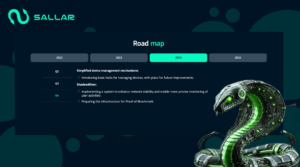How countries implement UBI trials? In an era marked by economic uncertainties and evolving employment landscapes, the concept of Universal Basic Income (UBI) has emerged as a potential solution to address inequality and provide financial security to all citizens.
Finland: The Trailblazer in Well-Being Enhancement
Finland’s UBI experiment, conducted between 2017 and 2018, provided 2,000 randomly selected unemployed individuals with a fixed monthly stipend. Results indicated a remarkable improvement in overall well-being and reduced stress levels among participants. Contrary to concerns about reduced employment, the trial did not significantly impact job-seeking behavior. This trial showcased the potential of UBI in enhancing individual welfare without discouraging workforce participation.
Table of Contents
ToggleCanada: Empowering Entrepreneurship and Education
In Ontario, Canada, a pilot project tested UBI among low-income residents between 2017 and 2018. The findings challenged common assumptions. Instead of reducing employment, the UBI encouraged recipients to explore educational opportunities and start small businesses. The additional income acted as a catalyst for entrepreneurship, leading to an increase in self-employment ventures. This trial demonstrated UBI’s potential to stimulate economic growth by empowering individuals to pursue educational and entrepreneurial endeavors.
Kenya: Simplifying Welfare Systems
In Kenya, the GiveDirectly initiative provided a basic income to 20,000 individuals in villages over 12 years, with recipients receiving a regular payment without conditions. This approach aimed to evaluate the impact of a long-term UBI on social and economic dynamics. Notably, the trial streamlined welfare systems by removing complex eligibility criteria. It also witnessed a boost in economic activities and reported improvements in health and education outcomes, illustrating the feasibility of simpler welfare structures.
India: UBI in Diverse Socioeconomic Landscapes
India’s state of Madhya Pradesh implemented a pilot UBI project from 2010 to 2013. The study included over 6,000 participants across various socioeconomic backgrounds. Results indicated positive impacts on food security, healthcare utilization, and school attendance. Moreover, the trial demonstrated that providing a basic income did not lead to reduced work efforts. Instead, it facilitated better financial planning and investment in education and health.
Lessons Learned and the Road Ahead
How countries implement UBI trials? These real-world trials shed light on the diverse impacts of UBI on individuals and communities. They challenge assumptions regarding reduced work incentives and illustrate its potential in fostering entrepreneurship, enhancing well-being, and simplifying welfare systems. However, challenges in funding and long-term sustainability persist. Learning from these trials, policymakers worldwide must carefully consider tailored approaches and innovative financing models to harness the true potential of Universal Basic Income.
In conclusion, insights from these global trials emphasize UBI’s multifaceted impact on different societies. Leveraging these lessons can guide the formulation of more effective and targeted policies, paving the way for a more inclusive and equitable future.




